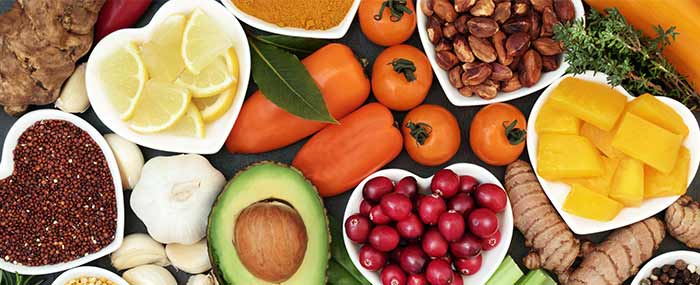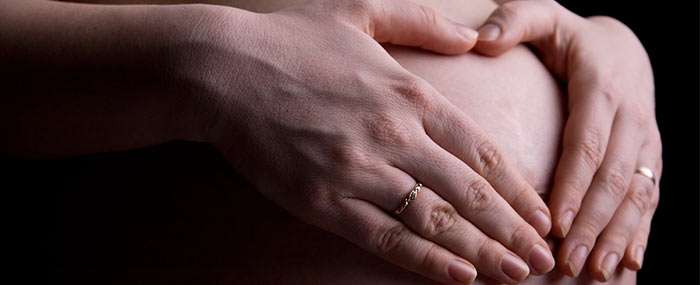From protein shakes to hyped up “superfoods” to vitamin supplements, it seems like antioxidants are the newest answer to everyone’s health worries.
But what about people looking to get pregnant?
Two studies published within the last month suggest that it goes both ways.

Nava Dekel, PhD supervised a team of researchers from the Weizmann Institute of Science in Israel who published a new study in the Proceedings of the National Academy of Sciences.
Their work showed that the application of antioxidants to the ovaries of female mice decreased ovulation levels.
This drop occurred because the antioxidants killed off the substances needed for ovulation.
So far: Antioxidants 1 / Fertility 0
Now comes the second article, which was a review published in The Cochrane System Database Review by lead researcher Marian Showell, MPH of the University of Auckland, New Zealand.
According to the data collected from 34 trials with 2,876 couples in total, there was a higher rate of live births among couples using fertility treatments where the men were taking antioxidant supplements.
Showell et al. suggest that antioxidants may improve sperm quality by reducing oxidative stress, a known cause of sub-fertility in men.
Now the studies used by Showell appear to be small in number, so more research is needed. But in any case, it is a possible avenue for increased fertility.
So the end result is that antioxidants may be helpful under some conditions, while harmful in others.
Confused over the many good-bad combinations of factors?
You aren’t alone.

When I’ve spoken with people who were trying to get pregnant, one common problem they all mentioned was the staggering amount of inconsistent information about how to increase their chances of getting pregnant.
The truth is, there are a lot of unanswered fertility questions still waiting for the scientific community to tackle.
But on the other hand, we’ve come a long way in obtaining fertility for couples who a generation ago would have never been able to have biological children.
What are your experiences working with patients coping with infertility?
Let us know below.
Pretty remarkable post. I simply came across your blog and desired to say that I have really enjoyed searching your blog posts.
I’m having a weird problem I cannot make my reader pick up your feed, I’m using google reader fyi.
If it exists maybe I have it (seriously). The answer probably is “yes”, but I’m not sure. Anyway, “interesting”ed. 🙂
The first point I would like to make is the term antioxidant is to broad a description to have any meaning. Secondly dose is important. AS we all live in an oxidant environment of oxygen, the body uses both dietary and endogeneous anti-oxidants, but the question is which ones are the most effective. Generally speaking it is the endogenous antioxidant enzymes such superoxide dismutase, glutathione peroxidase, catalase and glutathione which do the brunt of the work in neutralising free radicals.
When it comes to vitamins and traditionally we view Vitamin C,E,betacarotene, selenium, lipoic acid and CoQ10 as having antioxidant activity. However, at low dose around the RDA these substances can work as antioxidants but at high doses say 20 times the RDA or more they act as oxidants and play a crucial role in destroying cancer cells.
Taking one vitamin in isolation without its synergistic team of neutrients unbalances the redox cycle.
So dose, duration of supplementation, synergistic combination and disease status all influence the effect of the so called antioxidants.
From my clinical experience, any couple that are seeking to become prgnant should start supplementing six months before conception particularly in men. Women must be off the pill for six months before considering conception as the oral contraceptive tends to deplete the bodies level of folate, zinc etc.
Supplementing the male with appropriate nutrients (zinc, vitamin C, carnitine etc) that improve sperm viability. Six months is required to ensure optimum quality sperm. This helps reduce genetic defects particularly in older couples. Folate, B12, B6, zinc are important in females.
Oxidative Stress seems to be the root cause of many diseases. Please go and look at these studies on Protandim. Protandim reduces oxidative stress by 40% in 30 days and up to 70% with continued use. It is a powerful Nrf2 activator. To view the full studies, go to the bottom of my website and click on Protandim Clinicals, all of our studies have been peer reviewed and 5 of the 7 are independently funded. I’d love to know your thoughts after you have reviewed the studies.
The bottom line for couples is that they need to live a balanced, healthy life – spiritually, mentally, emotionally, physically – making the right choices in all these areas. Once they do, barring unknown medical reasons, they WILL achieve pregnancy. In the first study mentioned, what was the dosage of anti oxidants, or their formulation? Application of antioxidants directly to ovaries is hardly physiological. When taken as part a healthy nutritional intake, anti oxidants are highly unlikely to be detrimental – quite the reverse.